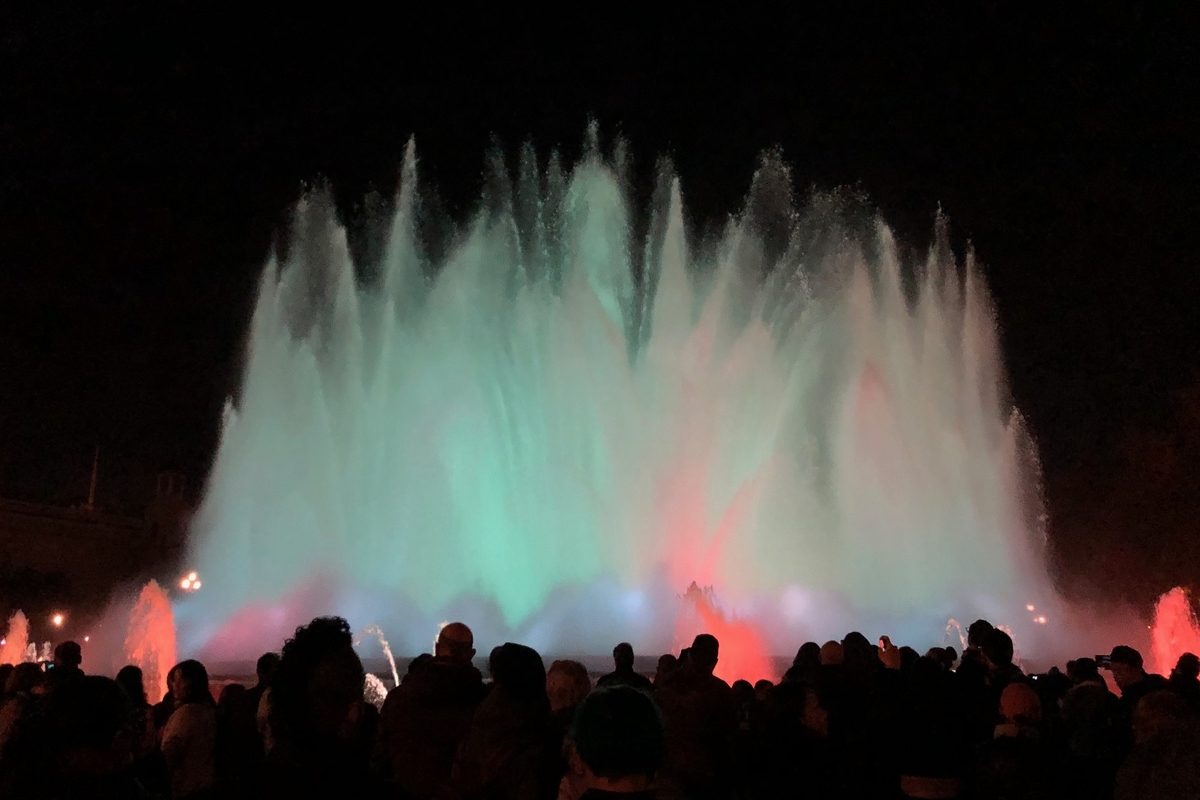
When my family traveled to Barcelona last winter, we planned on acting like regular tourists. That was not the case. On the train to Font Mágica, as my mom walked toward the metro’s exit doors, a man lingered in front of her, blocking the opening doors. He obstructed her path, pretending that he was unable to leave the train. Another man slipped by her, seamlessly gliding through the crowd. Nothing seemed suspicious. Their movements were as smooth and rhythmic as a jazz performance. Minutes after exiting the subway, my mom noticed the open purse zipper and frantically searched the pocket. All four passports were gone.
Our plans for the trip changed: we devoted hours of our short time in Spain to visiting government buildings and filling out documents. We ventured to the north side of Barcelona the next morning, which was the more authentic part of the city, located far from tourist attractions. When we reached the glorious, concrete United States Consulate, we observed another family trudging away, their faces displaying frustration. We approached the armed guard, and she quickly stated, “We’re closed. The U.S. government is shut down.” She suggested that we may want to visit the embassy in Madrid if we did not wish to extend our vacation. We departed from our first destination and excitedly searched for a police station to report our stolen passports. We walked uphill for miles in the outskirts of the city. Luckily, we found one, its waiting room filled with other fortunate guests. While inside, we had the pleasure of filling out a one-of-a-kind theft report. How many other tourists get the opportunity to learn about Spain’s criminal justice system? After dedicating the first half of our day to the adventure the pickpocket bestowed upon us, we anticipated our next journey to a government building in Madrid.
Because of President Trump’s decision to shut down the government, we had the opportunity to visit the bustling embassy. Its location allowed us to see parts of the city where tourists would never peregrinate. We waited eagerly in line in front of the magnificent, well-secured fortress of concrete. After going through extensive security, the guards kept our phones, allowing us to enjoy the bureaucratic process with no distractions. Spending hours sitting in a government-grade chair at dawn was the exact experience that I had dreamed of when we planned our trip to Spain. After filling out a stack of paperwork and waiting for the digital display to call our number, we received our first-ever temporary passports, which allowed us to return home as intended.
A pickpocket can better Anyone’s agenda. They have the power to introduce new experiences to all: we would never have seen one of the glamorous Barcelona police departments, the cozy United States Consulate, or the masterful United States Embassy without being pickpocketed! Abandoning tourist attractions allowed me to see and experience the Spanish government in big cities. If you crave to go on exciting adventures to government buildings and learn about their extensive bureaucratic policies, you should hope that a pickpocket takes an interest in you. But if you do not wish to have the pleasure of meeting another Elena Sierra that was born on April 11th, I would buy a money belt.
Dear Reader: This page may contain affiliate links which may earn a commission if you click through and make a purchase. Our independent journalism is not influenced by any advertiser or commercial initiative unless it is clearly marked as sponsored content. As travel products change, please be sure to reconfirm all details and stay up to date with current events to ensure a safe and successful trip.
1 Reply to “Spain: An Exploration of Bureaucracy”
Comment on this article
Oh man. I’m so sorry this happened to you. I certainly appreciate your take on this though, a little humor goes a long way. I’m headed to Barcelona in a few days, so I’ll be sure to keep my valuables close. Thanks for sharing.